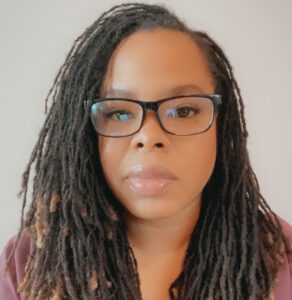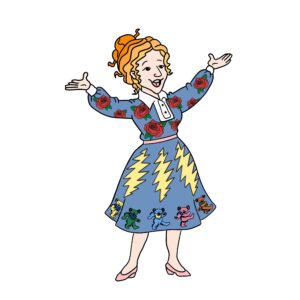
What Miss Frizzle Teaches Me About Teaching - Part One: Taking Chances

“Take chances, make mistakes, and get messy!” – Miss Frizzle
Now, I know what you may be thinking, “Miss Frizzle?!?! The teacher from the Magic School Bus? Really?” Or, better yet, I’ve just aged myself and what you’re actually thinking is, “Who the hell is Miss Frizzle?” Either way, extend a bit of grace and just bear with me for a bit.
Miss Frizzle is the main character and teacher in the famed Magic School Bus books and cartoon. In the series, Miss Frizzle takes her third-grade class on some unique adventures, immersing them into the worlds that represent their lessons. Want to learn about the solar system? Let’s take a trip into space! Curious about the way food moves through the body? Well, if we make ourselves small enough, we can take the journey ourselves. With a bit of magic, anything is possible.
While I personally don’t have a magic school bus, as a kid I was always fascinated to go on crazy adventures with Arnold, Keesha, and the rest of the class. Now that I am older and an educator myself, I recognize that the lessons still abound! There is still much to learn from Miss Frizzle, and these days I find that her pedagogical genius is often overlooked. The gap between teaching elementary-aged children foundational lessons and teaching adult seminary students may seem stark, but the best lessons Miss Frizzle offers us is culminated in her signature saying, “Take chances, make mistakes, and get messy!” So, for this series we will explore each of these lessons in detail.
Taking chances:
There are a lot of rules when it comes to teaching. Rubrics, curriculum, and syllabi all help us to remain accountable to the metrics created to determine whether or not we are where we should be. So much of our time is spent trying to prove these metrics, creating objectives and curating expectations for both our students and our deans. But what does it mean to be creative in what feels like such a restrictive space? How are we to understand our possibilities when we are inundated with obligations to our limitations? Miss Frizzle understands this. You wouldn’t know it by the way she conducts her classes, but she understands this dynamic so well that she is able to get to the heart of the matter by breaking and bending the right rules. Her class objective is to get students to learn in a way so that they are not only excited about the material, but they are able to integrate it into their real lives and utilize the knowledge in impromptu situations. These are our objectives as well. Theological education isn’t just learning facts about God, the church, and the history of theology. Theological education is about shaping leaders who are excited about God and spirituality, who can integrate these lessons and excitement into their lives, and who can walk with others as they do the same.
What to keep, break, and bend:
When it comes to rules, we often believe we must choose between two extremes – we either uphold them, or we break them. But here’s a secret I think everyone should know: all rules are made up. Rules (hopefully created in community) help us to hold one another accountable to do what we set out to do. They can protect us, and can help create lines of clear communication and boundaries. But they only work when they help a community thrive. When they don’t, they become restrictive and oppressive.
I’m reminded of this when I think about online participation posts. I hate participation posts, both as a student and as a professor. Ideally, these assignments help us measure how students participate in class by tracking their offered insights on reading and responses to other students. This intent isn’t a bad thing, but it often creates a forced conversation that trades its organic freedom for obligation. It may track the fact that students participate, but it may also diminish the conversation in the process. What do you do when you have a rule that feels too important to break (we need to track participation in online classes), but feels too restrictive to uphold (no one likes participation posts)? This is where bending the rules becomes key. This is where Miss Frizzle asks us to take a chance.
What are some of the ways you bend the rule of participation that doesn’t restrict excitement and the flow of engagement? In my courses, I ask students to participate in a section I call MOOD, which basically captures the mood or essence of the course. Divided into four sections (Listen, Watch, Read, and Visit) I start by including resources that expand the conversation and encourage students to add to the ever-growing list. I even include a playlist for students to collaborate on. I often get posts from students like, “I was visiting this museum and it made me think about the reading from last week,” or “This movie really allowed me to think more about our conversation!” By inviting participation in a different way, students are not only engaging each other and the course, but they are encountering elements of the class in their own contexts.
What is wisdom without wonder?
The question at the heart of taking chances is one I often ask myself and my students: what is wisdom without wonder? So much of our education is about proving knowledge. Even in theology, our metrics track what one can prove about God, or at the very least how we have mastered the history of this quest. Even as we seek to measure the tools our students learn that can directly (and indirectly) translate into their professions and vocations, we are often left with a knowledge that lacks nimbleness, a proficiency without play. What would it look like to track the wonder in our students? How many of your assignments require a thesis that explores the crevices of a question as opposed to proving a point? Miss Frizzle’s adventures were less about proving points and more about practicing possibilities. I wonder what theological education would look like if we did the same?
Leave a Reply